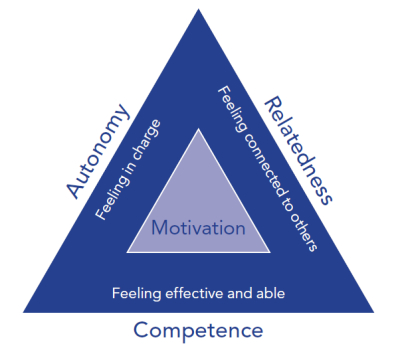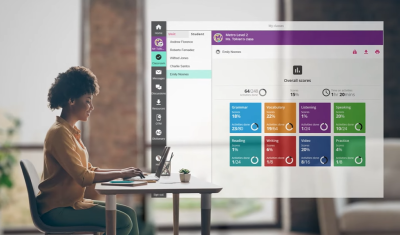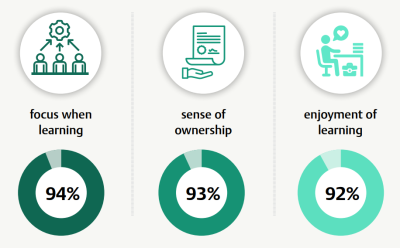In February 2023, we wrote 5 Ways to Motivate Students with Classroom Technology, including the importance of situated learning, wide exposure to English, personalized learning, autonomy and social learning. We also highlighted our 360° interactive images as a unique form of situated learning that uses technology to increase motivation inside the classroom by taking students on a virtual learning journey, from the bottom of the ocean to the international space station.
Our new paper, Using Technology to Motivate Learners, outlines important considerations when integrating technology into classroom practice (for learning in and beyond the classroom) and offers detailed guidance and suggestions. A good starting point for choosing technologies and tasks is to focus on how best to meet three key psychological needs of autonomy, relatedness and competence. It is important that technologies match with teaching and learning goals, are easy to use, help learners develop appropriate learning behaviors and are relevant to their lives.

In addition, the implementation of technology into classroom tasks requires careful planning and management to maximize motivation. In doing so, our paper encourages teachers to explain the rationale of tasks, to give learners choices, to monitor their behavioral, cognitive and social engagement levels, to promote good language learning habits and to provide opportunities for repeated practice.
How can OUP support language learning with technology beyond the classroom?
Oxford Online Practice is a course aligned digital learning space, providing students with a wealth of interactive features to practice all English language skills alongside their coursebook. Features include audio and video content, instant automated markings and a skills area to review progress across the units. The platform allows teachers to create classes, enroll students, assign practice, review reports, and communicate via the messages function and discussion board.

In 2021, OUP carried out an impact study on Oxford Online Practice, looking at whether its use improves student engagement with learning English outside the classroom. As part of Oxford Impact, an impact study is research that investigates a particular change a product or service has on the group of people it is intended to help or benefit. 245 teachers from 29 countries took part in this impact study and 96% of them agreed that Oxford Online Practice had a positive impact on students’ engagement with learning English outside the classroom, delivering the following outcomes for students:

The majority of teachers also highlighted audio and video content, clear instructions and varied activity types on Oxford Online Practice as effective in improving student engagement. As a digital learning space that accompanies OUP courses across all segments and levels, Oxford Online Practice places enjoyment at the heart of learning. It is relevant to learners’ coursebooks, it visualizes progress, and it encourages learner autonomy. Click here to learn more and read our impact study. To try Oxford Online Practice with our new and best-selling courses, sign up for a 90-day free trial.
Try Oxford Online Practice
_______________________________________________________________________________________
Oxford University Press ELT
The official global blog for Oxford University Press English Language Teaching. Bringing teachers and other ELT professionals top quality resources, tools, hints and tips, news, ideas, insights and discussions to help further their ELT career



Technology has revolutionized the way we learn, and the advent of technology-driven solutions has further accelerated this transformation. With the help of various tools, such as online courses, e-learning platforms, and educational apps, we can now learn anytime and anywhere.
How can technology help change the way we view learning outside the classroom and expand relevant and engaging learning opportunities for students?
How can technology be used to facilitate learning that is adaptive and tailored to the individual needs of students, especially those with special needs?